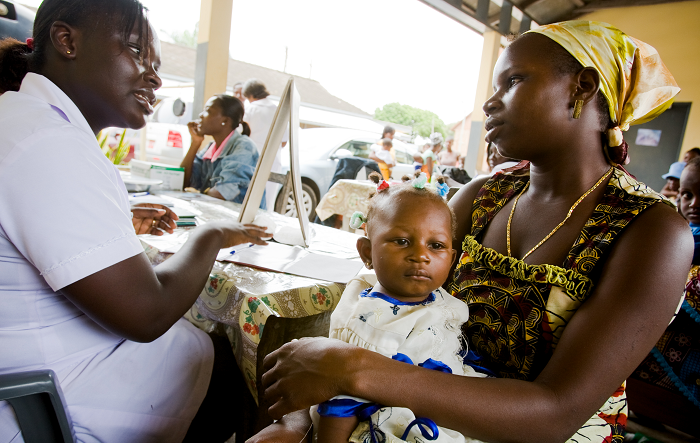
Savana Signatures initiates maternal, child health project
The Savana Signatures, a Tamale based Non-Governmental Organisation (NGO), has introduced an innovation to increase access to health facilities and knowledge about healthy pregnancies and safe childbirth for about 30,000 pregnant women.
Dubbed “Technology for Maternal and Child Health (T4MCH) ICT Training”, the project, which is being funded by Global Affairs of Canada, is being implemented in response to high maternal and child mortalities in the three regions of the north.
The T4MCH project, which is being implemented in 33 health facilities in nine districts across the three regions of the north, relies on using mobile phone technology to make maternal and child health (MCH) information easily accessible to expectant mothers and their families.
As part of the project, Savana Signatures has organised a three-day ICT training programme to enhance the skills of midwives, community nurses and other health staff in the health facilities in the project-implementing areas on MCH, in Tamale in the Northern Region.
Essence
In an interview with the Daily Graphic after the training programme, the Executive Director of the NGO, Mr Stephen Agbenyo, explained that the T4MCH project delivered MCH messages through mobile phones to pregnant women on MCH, beginning from the fifth week of pregnancy to six months after delivery.
“Women and families register for the programme and receive weekly SMS or voice messages about MCH,” he stated.
He said the SMS and voice notes were done in English and in the languages of the beneficiaries, adding that “messages are tailored to stages of pregnancy and infant development.”
Touching on the essence of the introduction of the project, he said maternal and neonatal deaths were extremely high in the three regions of the north, pointing out that in northern Ghana, Maternal Mortality Rates (MMR) “are even higher than the national average of 320 deaths per 100,000 live births”.
Mr Agbenyo, however, expressed the hope that the innovation would help to reduce maternal and child mortalities in the beneficiary communities.
